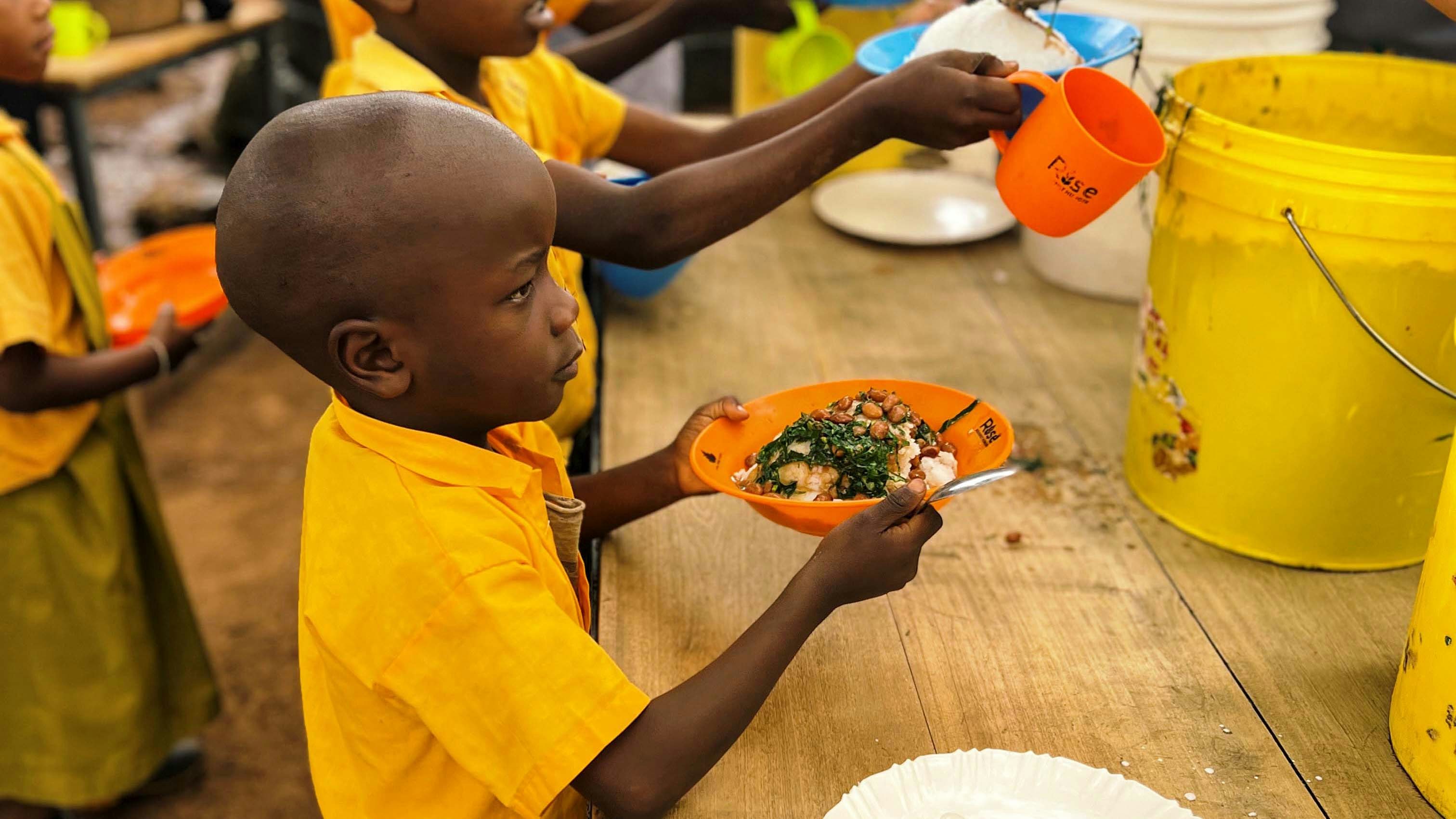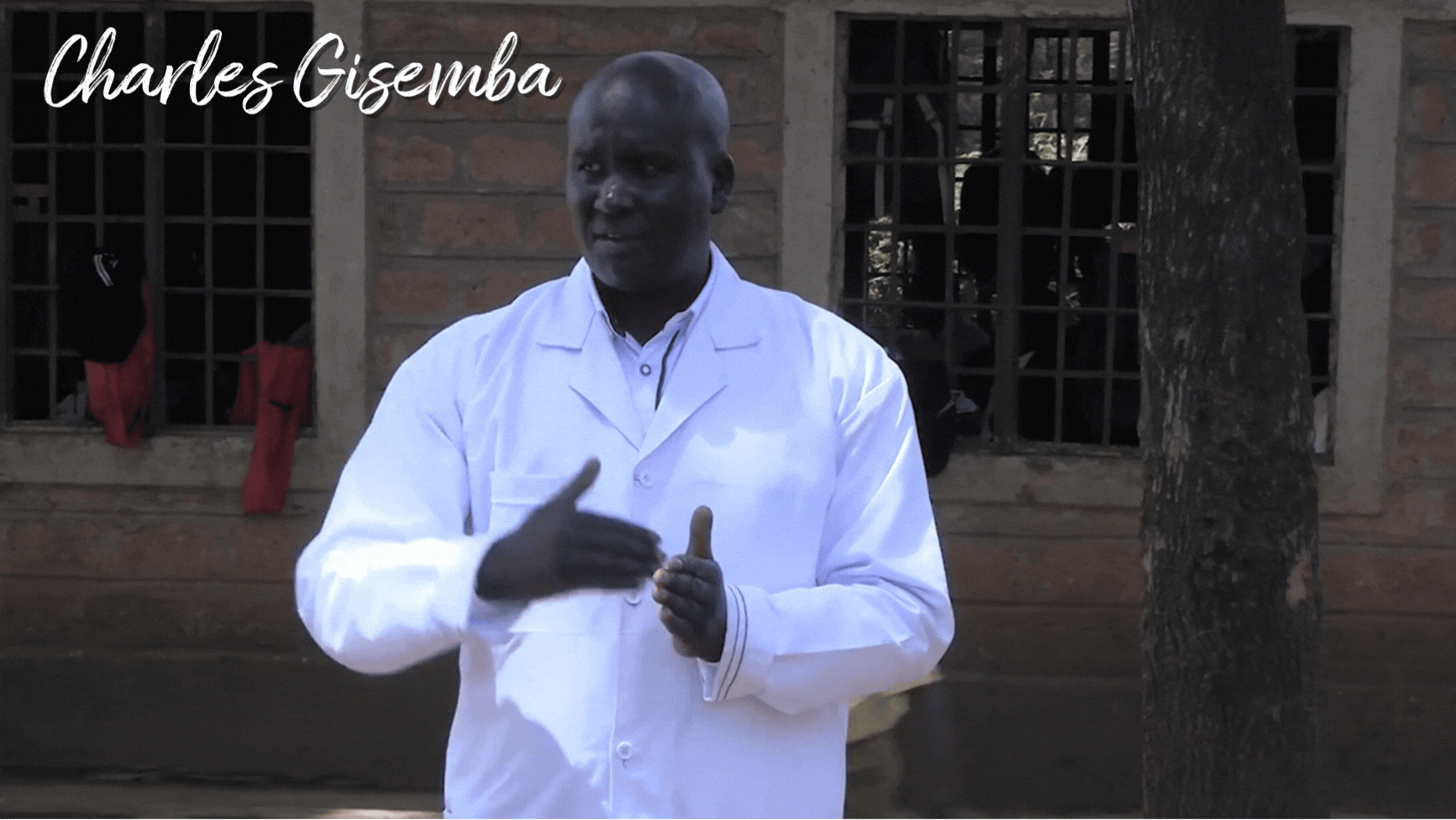In southwestern Kenya, seven schools are creating holistic, long-term solutions to food insecurity for their students and local community. The seven schools participate in the Feed for Knowledge project, launched in 2022 by Rise Against Hunger and in-country partner Rural Family Hope. In a region where malnutrition rates are higher than the national average, this multi-faceted project addresses the root causes of hunger to reduce malnutrition in these communities.
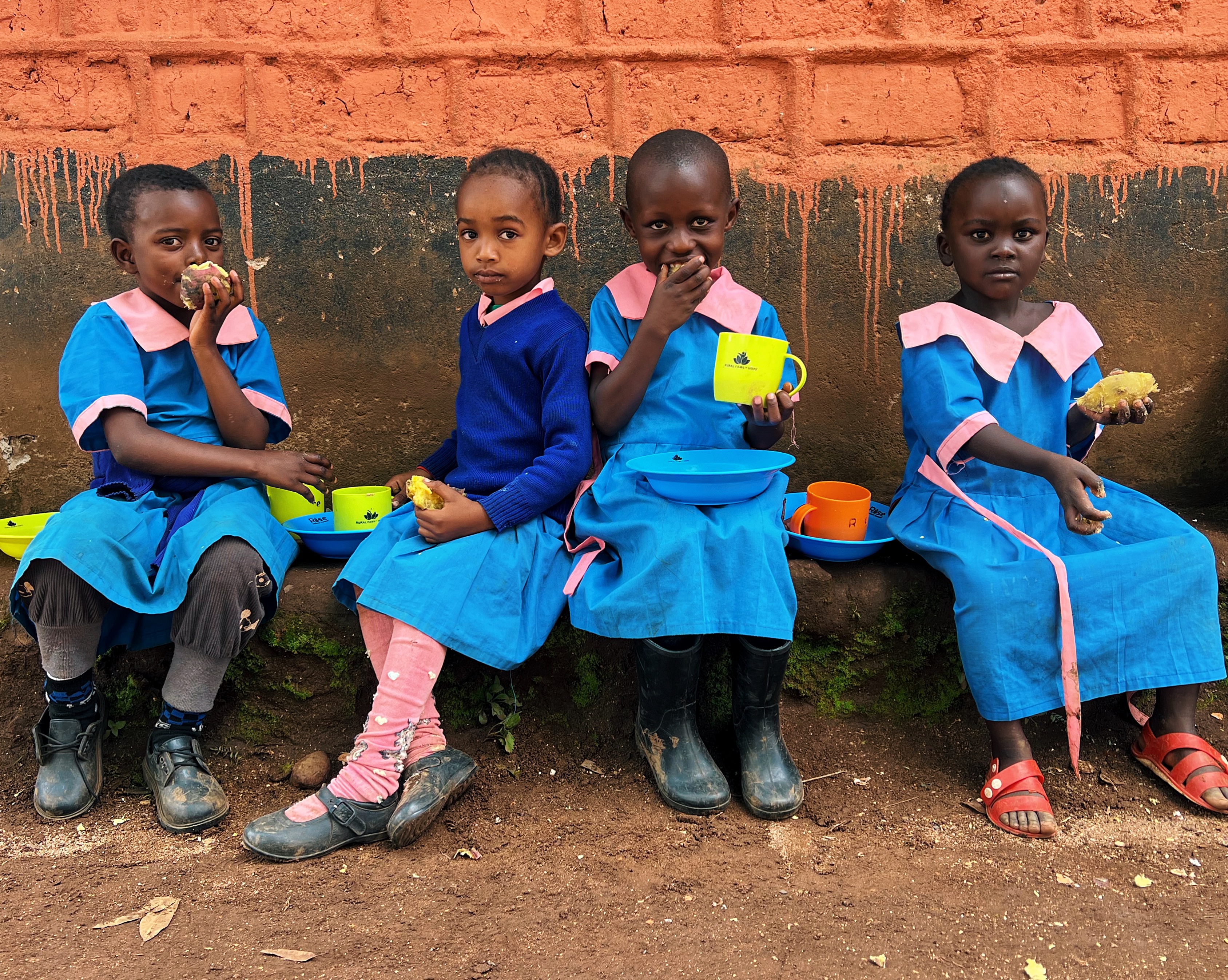
Grounded in school feeding, the project provides farmers with sustainable agriculture training, establishes school gardens and supplies water tanks, in addition to serving students two nutritious meals daily comprised of local ingredients. These project components are improving the children’s nutrition — just in the project’s first year, the participating schools reported malnutrition rates decreased by 85%! And that’s not all! Keep reading to hear from local students and school leaders on how the feeding program at Simbauti Primary School (one of the seven participating schools) improves nutritional status and supports bright futures for the children.
Charles Gisemba, a teacher in charge of the feeding program at Simbauti Primary School
As the teacher in charge of the feeding program at Simbauti Primary School, Charles explained that the school ensures the meals are highly nutritious. “We have vitamins, carbohydrates, bodybuilding — it’s a balanced diet,” he said. The meals are made of crops from the school gardens and local farmers, as well as food purchased locally with funds from Rise Against Hunger. Eating rice, beans, kale, yogurt and more, the students receive adequate nutrition to support their health.
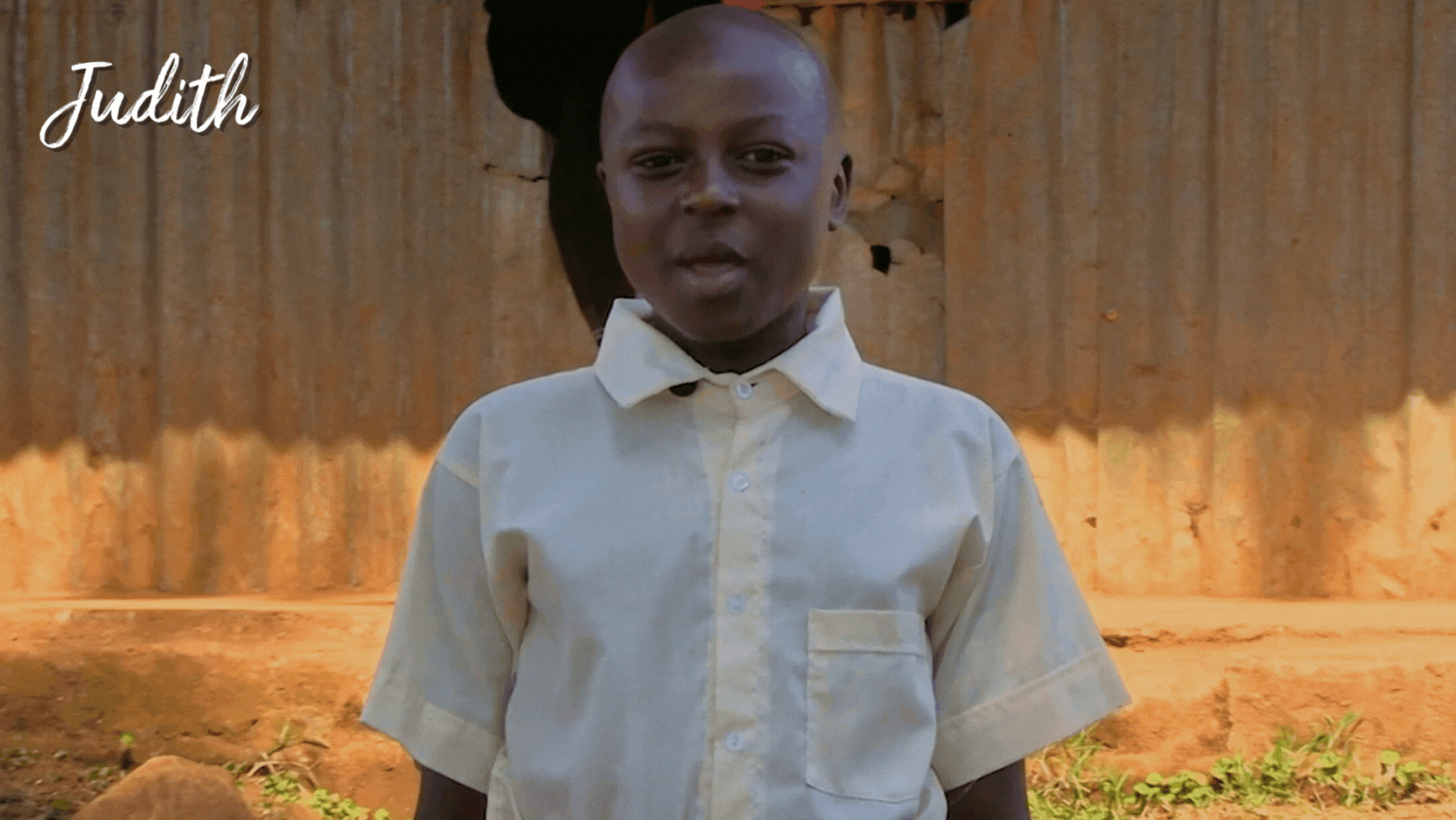
Judith, a grade 7 student at Simbauti Primary School
Judith, age 12, receives two school meals every day through the project. She has noticed a physical difference since eating the meals, explaining, “I like my school because they give us very nutritious food and that makes our bodies strong and our bones strong.”In a song performed by Judith and her classmates, she also shared that, before the feeding program, many students did not attend school due to a lack of food. But she and her classmates sang, “Nowadays, we don’t have any absenteeism because the food is affordable. We don’t have any risk of healthy challenges.” With their nutritional needs met, Judith and her fellow students can attend school regularly and focus on their studies.
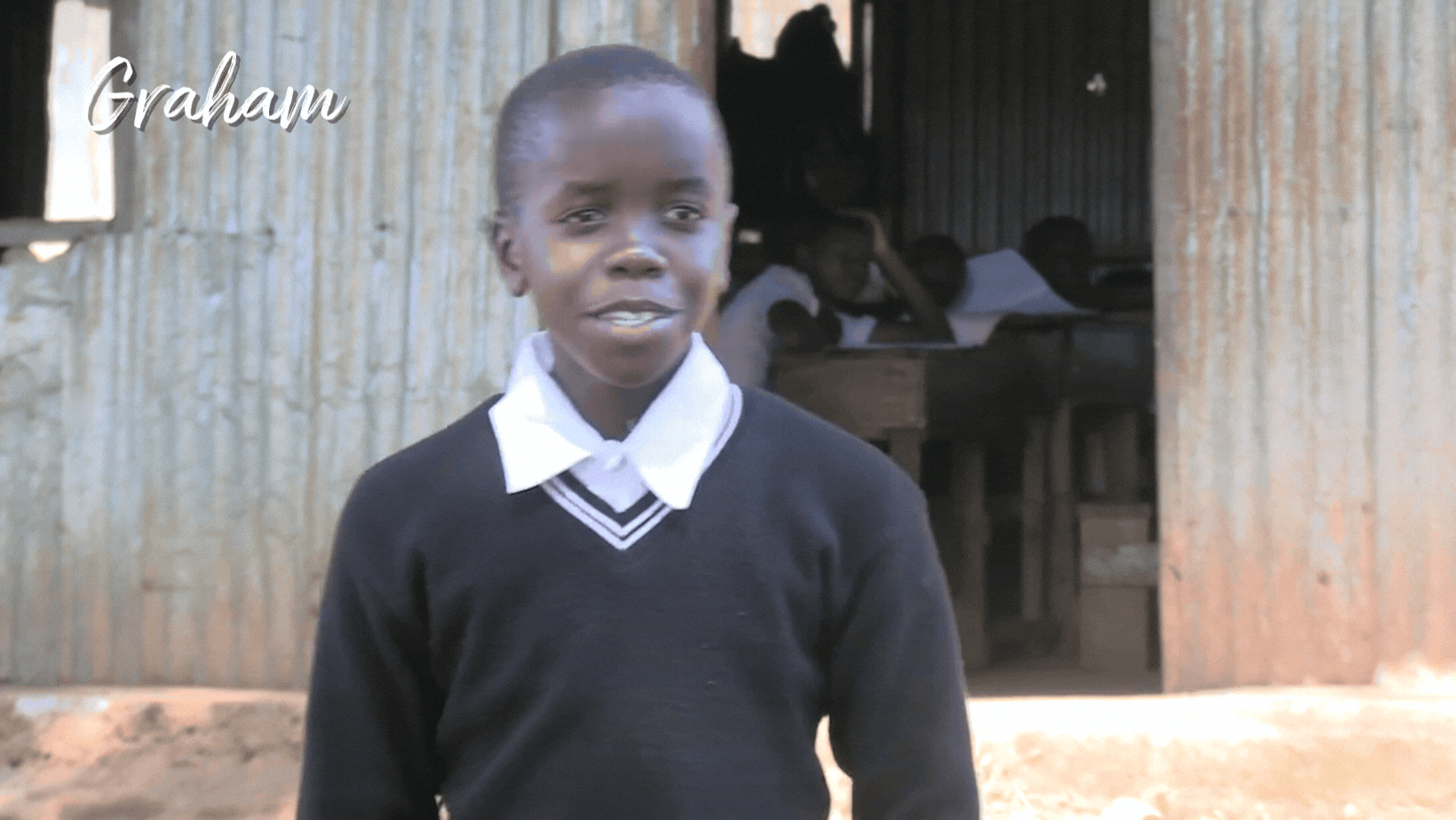
Graham, a grade 8 student at Simbauti Primary School
Graham is another recipient of the feeding program at Simbauti Primary School. He said, “I feel better [after eating the meals] because they are healthy foods, which are balanced diets and they give us health in our bodies.” With the meals providing Graham with the critical nutrition he needs to be healthy and thrive, he can focus on his studies — including mathematics, his favorite class — as he works toward his dream of becoming a doctor one day to help others.
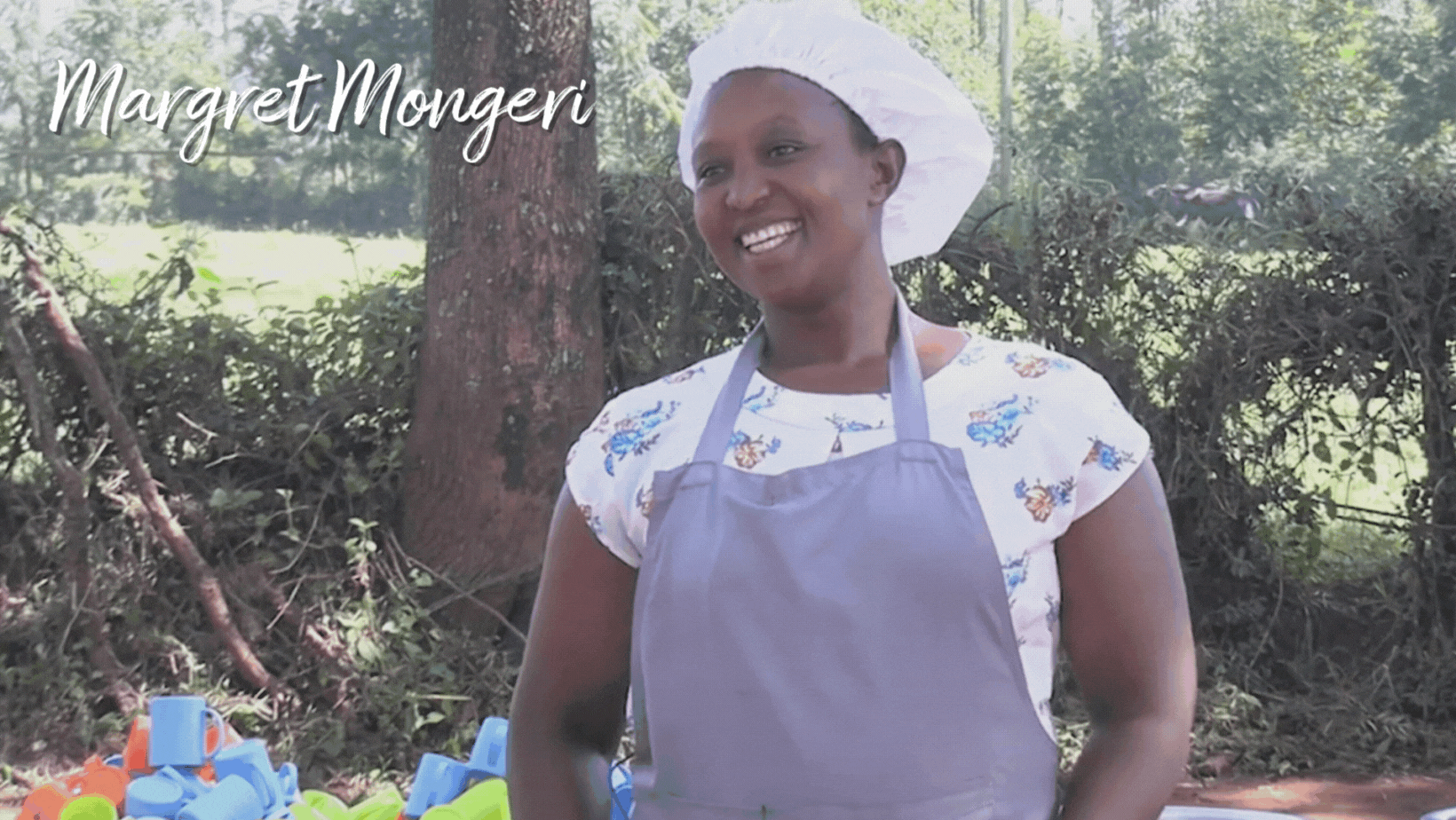
Margret Mongeri, a cook at Simbauti Primary School
Working as a school cook for three years, Margret has seen firsthand how the Feed for Knowledge project has transformed Simbauti Primary School and its students. When she first started working at the school, she explained that many parents faced challenges in paying for food for their children to eat at school. This led to a lot of students missing school. Since the feeding program launched, more children are now attending school, and their overall health has improved. “I no longer see children miss school,” Margret said. “They report every time. And their skin a while back was bad, but now the food has helped them become very healthy. They are very healthy.”With fewer malnutrition cases and improved health, the students at the schools participating in the Feed for Knowledge project can focus on their education, a crucial building block for their futures and for long-term impact in their communities. Watch the video below to learn more:The Feed for Knowledge project holistically supports nutrition, education, agriculture, livelihoods and health — and YOU help make this impact possible. It starts with a meal, and it starts with you. Will you help us ensure children and families in Kenya and around the world have the nutrition they need? Donate today!


